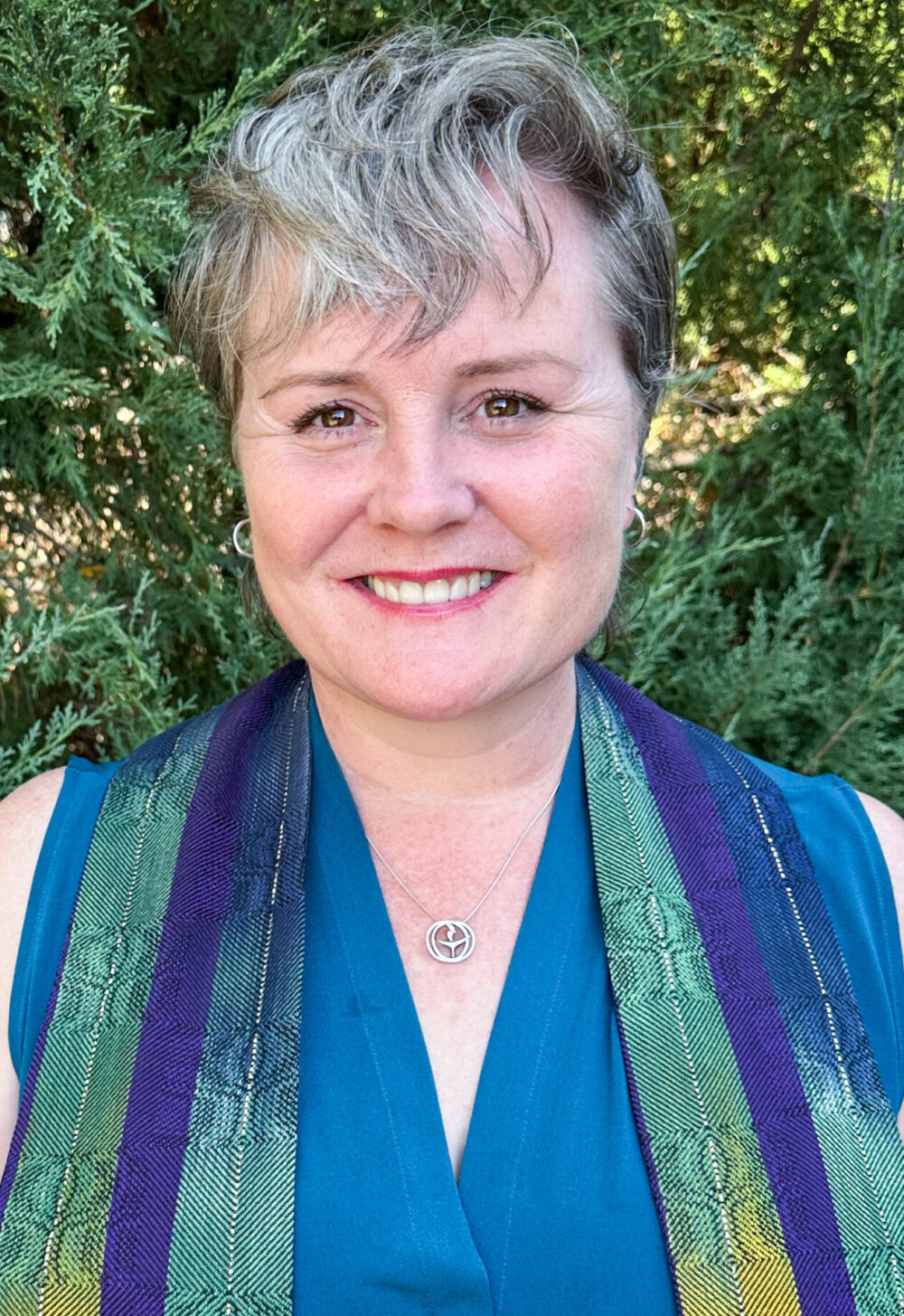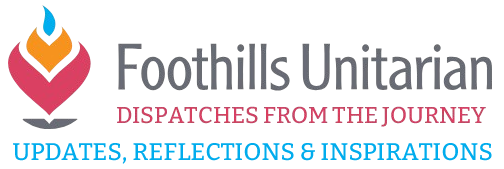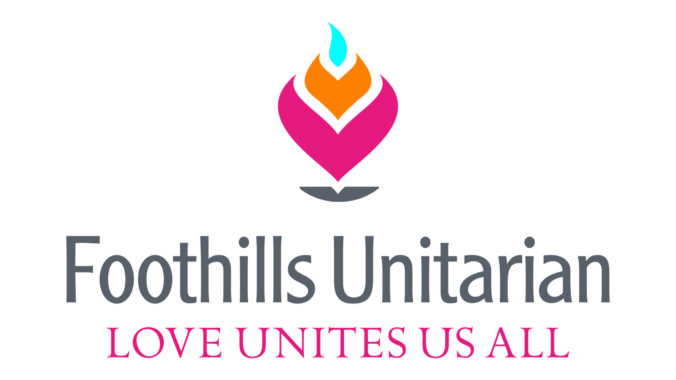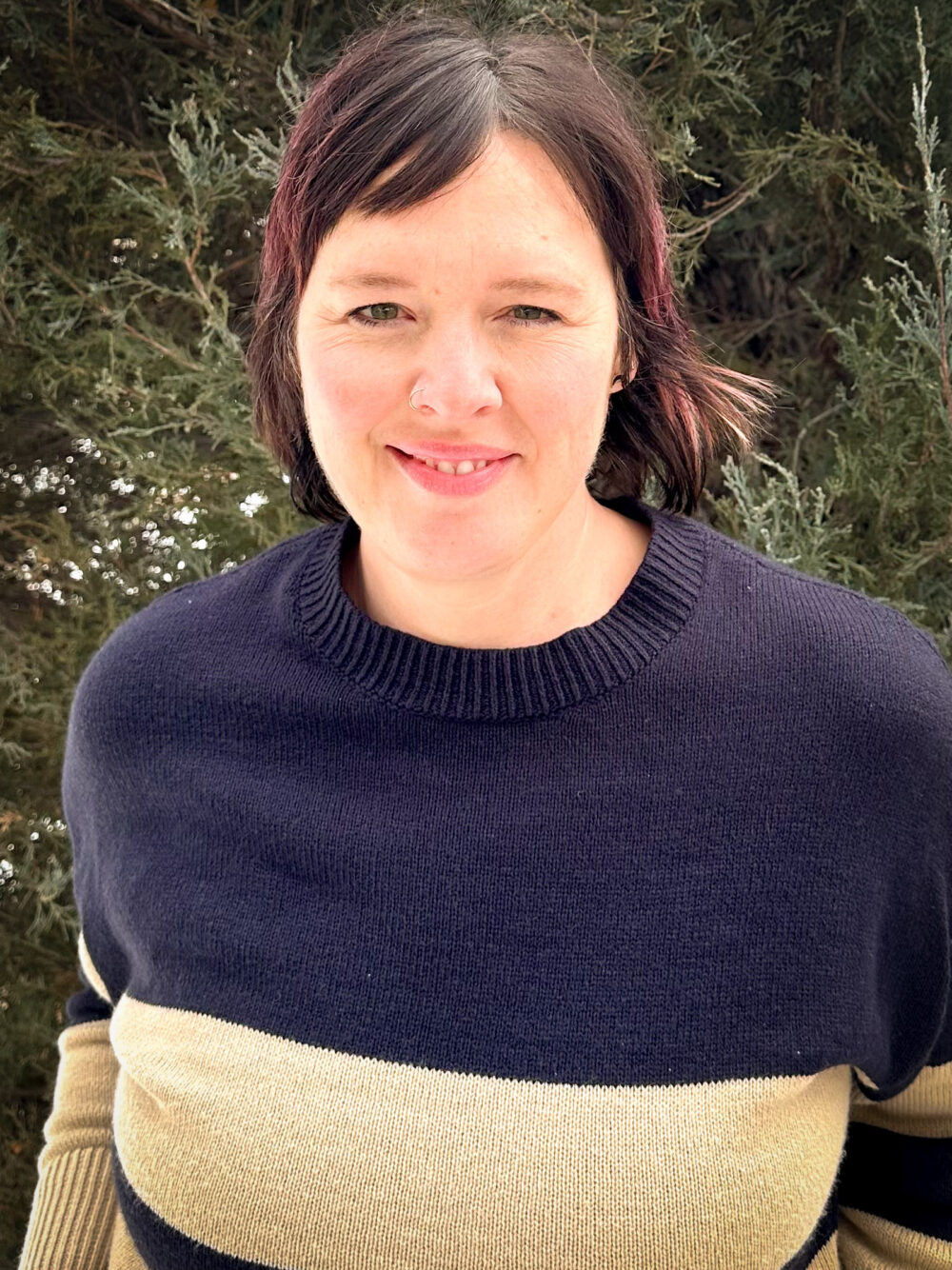[vc_row][vc_column][vc_column_text]I’ve loved labyrinths for a long time, especially since a walk I took through the labyrinth at Sunrise Ranch in Loveland about 10 years ago. It was a time of major transition in my life, and turning through its tangles as the sun was setting one evening felt like unraveling my heart. I felt connected and alive and open to all that life would bring next.
That first–and the many transformative times I’ve had with labyrinths since–are why I was so excited that we could bring the labyrinth practice to Foothills during the Future Tense series.
It has been really beautiful to witness people traveling the labyrinth this month. And…at the same time, I’m so relieved that we won’t have the labyrinth as a part of the 11:30 service anymore! Not only was it pretty labor intensive to set up (thank you so much to the volunteers who made it happen!!) in a very short turn-around after the 10:00 service, it necessarily took up a disproportionate amount of time for a Sunday service. And even still, I felt like it wasn’t enough time to have the sort of transformative experience the labyrinth process.
Labyrinths are a perfect example of my message from Sunday. They are NOT efficient! Labyrinths are meant to be deliberative, slow journeys where you really feel the movement in your body and soul.
Which is why I’m so glad and grateful that Pat Slentz, spiritual director and labyrinth guide, is offering a 2-hour workshop this Saturday from 9-11 to fully explore the labyrinth. She’ll provide some history and context, and then she’ll guide us through a walk in the labyrinth as a meditative experience.
Sign up here – and invite a friend!
This workshop seems to me the perfect bridge between the Future Tense series and our next series, The Feels, which we’re kicking off this Sunday–as the movement in a labyrinth often helps us process and move emotions through our bodies and minds so that we can be open to what life brings next. Rev. Kristen is kicking off the series this Sunday with a service looking at liberal religion’s historical resistance to emotional wisdom and ways to engage emotions productively today
Join us at 8:30, 10, or 11:30–looking forward to seeing you there!
In partnership,
Rev. Gretchen[/vc_column_text][/vc_column][/vc_row][vc_row][vc_column][vc_column_text]Notes from Future Tense: Week 4 – Inefficiently Yours
Listen to the sermon
Read the sermon
Text
Wendell Berry’s Manifesto: Mad Farmer Liberation Army
Mentioned in the Service
Automating Humans: The Costs of Amazon’s Extreme Efficiency
Courtney Martin’s article about an ambivalent relationship to efficiency
Malcom Harris’ book on millennials and efficiency
Music
We sang our series theme song People Get Ready
The Band played Panic! At the Disco’s High Hopes
We sang Bill Withers’ classic Lean on Me
Further Resources
Time Article on Amazon’s Treatment of Workers
Hurry Slowly – A podcast on being more productive, creative and resilient by slowing down
On the Clock: What Low-Wage Work Did to Me and How It Drives America Insane.
Remember
We have created an economy, and increasingly a culture,
that conflates efficiency with ultimacy.
But humanness is inherently inefficient.
Which means we’ve created an economy, and increasingly a culture
that requires we suppress our humanity.
Our faith reminds us that we hold both the agency, and the responsibility
to create a world that amplifies and celebrates –
rather than suppresses,
our humanness –
our true existential purpose
of being utterly and inefficiently interdependent.
Notice when you are getting caught thinking efficiency is the same as best.
What other values can you choose to privilege to create a future where humanness can freely flourish?
[/vc_column_text][/vc_column][/vc_row]

Rev. Gretchen Haley has an audacious ambition for the liberal church, believing in its capacity to transform lives and our world by way of hyper-local relationships and partnerships that inspire the unleashing of courageous love. She oversees worship, community resourcing and outreach, and the intersectional work of our justice teams. She also serves as chief of staff, and ministry lead to the Board. In all of these, she is inspired by the commitment of the countless people who show up to do the sometimes-messy work of the church, and who are leading us to live into our mission for Northern Colorado as it is growing and changing. Her ministry is infused with her relentless curiosity about most things, especially the big stuff of theology, the beauty of creation, the magic of collaboration, and the joy of pop culture. She’s all in on adrienne maree brown’s emergent strategy, and finds solace in the trails in and around Fort Collins. She moved to Colorado from Washington state over 20 years ago for grad school in theatre, and knew immediately that she would never leave. She and her amazing partner, Carri, have 2 teenagers, Gracie and Josef, who both relish and resent being PKs, and who keep her grounded, frustrated, inspired, and humbled, everyday. She is basically obsessed with her two dogs, both large mutts, Charlie and Archer.
Responsible for: Worship, Community Resourcing and Outreach, Justice Ministries, and Congregational Leadership



